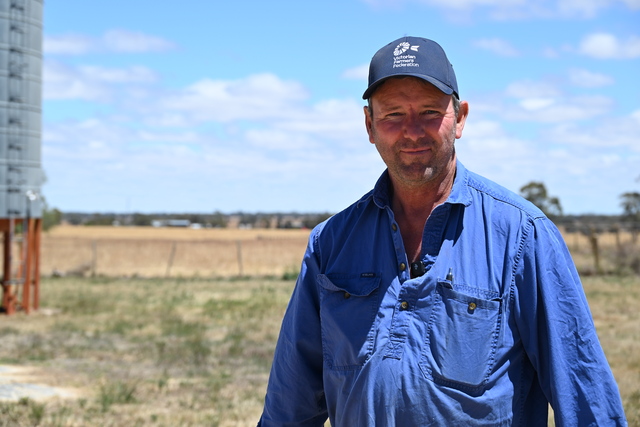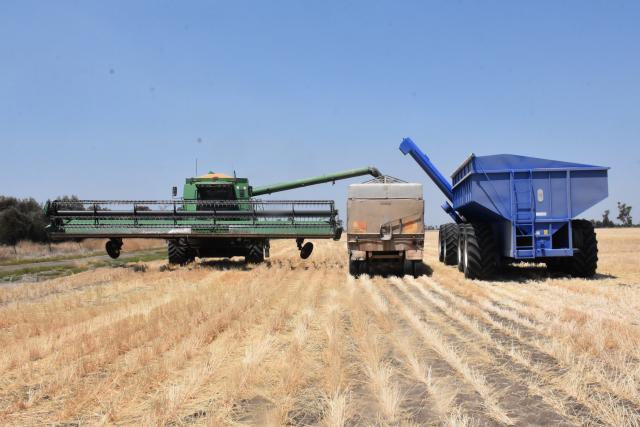A VIOLENT offender who rammed through a Kerang car dealer during a three-month rampage across regional Victoria in 2021 has had his appeal against sentence dismissed.
Korey Caddy, 35, was granted leave to appeal against a sentence imposed in the County Court in October 2023.
The appeal was heard in the Supreme Court of Victoria Court of Appeal on May 1 before Justices Lesley Taylor and Terry Forrest.
Caddy pleaded guilty to 38 indictable offences and two summary offences and was sentenced to 10 years’ jail, with a non-parole period of eight years.
Between May 2021 and July 2021, Caddy and two others committed a series of burglaries and thefts, both at residential and commercial properties, with some of the thefts including motor vehicles which were then used to break into other buildings.
Three of the stolen motor vehicles were set alight and destroyed.
On a number of occasions, force was used to gain entry to the premises which resulted in damage being caused to the building.
On July 17, 2021, the appellant used bolt cutters on a gate at Kerang Mechanical Repairs. The appellant and co-offender attended the Kerang Ford commercial premises. They stole a white Ford Courier from the yard, valued at $7000.
After the appellant used the Ford Courier to ram the premises’ glass panelling, he entered the premises searching for keys to two showroom vehicles.
In her reasons for sentencing, the judge said, “you should … feel thoroughly ashamed for the loss you have caused your victims and the havoc you have wreaked across a number of communities by your grossly dishonest and destructive behaviour.”
The judge assessed the objective gravity of the offending as high, describing “a rampage of ongoing criminal conduct”.
The judge considered the arson offending to be “very serious” and noted … the appellant fell to be sentenced as a “serious arson offender”.
His offending was aggravated by the fact that he was serving a community corrections order at the time of offending.
The appellant contended that the judge’s reasons were “insufficient”.
In argument, the appellant contended that the reasons for sentence were deficient in that the judge did not explain how the following factors informed the sentencing task: plea of guilty at the earliest opportunity with significant utilitarian benefit due to the pandemic; remorse; hardship in custody due to the pandemic; and risk of institutionalisation.
“When addressing the objective gravity of the offending, moral culpability and application of the sentencing principles, the sentencing judge engaged in a mere recitation of the facts, accompanied by bald statements of conclusion,” the appellant’s written submissions said.
Justices Taylor and Forrest said having scrutinised the reasons for sentence, the transcript of the plea hearing, the summary of prosecution opening tendered on the plea and the defence submissions also tendered on the plea, “we consider that this ground of appeal is not established”.
“The judge had before her comprehensive written submissions from the appellant’s counsel, a psychological report from Jeffrey Cummins, three letters of support, bundles of prison certificates and negative drug screen results taken during the appellant’s 22 months on remand,” they said.
“It is clear that the judge read all of the material that was before her, and by reciting the submissions of the appellant’s counsel which were undisputed by the prosecution, it is clear to us that her honour took these matters into account.”
Justices Taylor and Forrest said the complaint that the judge “merely recited the facts and accompanied them with bald statements of conclusion” is bereft of merit. “The appellant’s criminal conduct, over a series of months, spanned most of the Central Highlands, Murray Plains, Central Goldfields and down to the Bellarine Peninsula,” they said.
“That same conduct also spanned a large portion of the Crimes Act.
“It was accurately described by the sentencing judge as a ‘rampage’.
“The details of this rampage only have to be factually recited to explain ‘the bald statements of conclusion’.
“The appellant’s actions speak for themselves.”
Justices Taylor and Forrest said the appellant’s prior criminal history, the sheer extent and duration of his offending, and the aggravating fact that it was all carried out whilst the applicant was subject to a CCO, “calls for a lengthy sentence”.
“The appellant … was responsible for waves of destructive, highly dishonest, dangerous and breathtakingly stupid conduct which caused great alarm to the victims of their behaviour and must have also to the wider rural community upon which they preyed,” they said.
“Notwithstanding the careful and comprehensive submissions put on behalf of the appellant, we are not satisfied that this sentence is manifestly excessive.
“The appeal against sentence must be dismissed.”
















